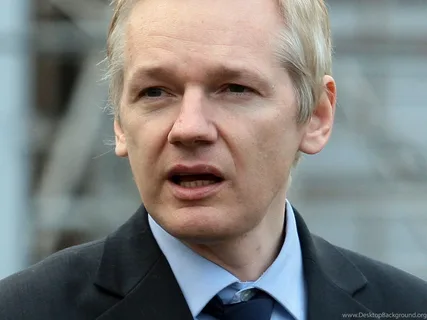The High Court in London has recently made a significant decision regarding Julian Assange’s extradition to the United States. After being granted leave to appeal the UK Home Secretary’s extradition order, Assange’s legal battle takes on a new dimension. However, there’s a caveat to this favorable judgment that could influence the outcome significantly.
The Sting in the Tail: Conditions Attached to the Appeal
While the court’s decision to grant leave to appeal provides a glimmer of hope for Assange, it comes with conditions. The United States holds the power to halt the appeal process by providing adequate assurances regarding Assange’s treatment, particularly concerning freedom of expression. This condition adds complexity to Assange’s legal saga, introducing a potential roadblock even with the granted appeal.
Court Rulings and Grounds for Appeal
The court’s ruling involved a thorough consideration of various grounds argued by Assange’s legal team. Some arguments were rejected, while others were accepted, shaping the trajectory of the appeal process. Notably, the court dismissed claims regarding the incompatibility of extradition with treaties and human rights conventions, but acknowledged others, including concerns about freedom of expression and the principle of specialty.
Surprising Grounds for Appeal
The grounds accepted for appeal raise eyebrows, especially given the previous District Court judgment. The court’s willingness to entertain arguments regarding Assange’s journalistic activities as potential grounds for appeal marks a significant shift. Additionally, the issue of prejudice based on nationality adds a new dimension to the case, potentially challenging the application of First Amendment protections.
Julian Assange’s Legal Journey
Although Assange’s immediate extradition is stalled, his legal battle is far from over. The granted appeal opens avenues for further proceedings, with potential hearings scheduled for later in the year. The outcome of this appeal will determine Assange’s fate, with scenarios ranging from release and deportation to Australia to continued legal battles in higher courts.
Potential Paths Forward
In the event of a failed appeal, Assange’s legal team may explore additional options, including seeking recourse from the UK Supreme Court. However, if all domestic remedies are exhausted, attention may turn to international avenues, such as the European Court of Human Rights. Here, Assange’s lawyers may seek interim measures to prevent extradition pending a final decision.
Interim Measures and Human Rights Considerations
The possibility of interim measures from international courts underscores the gravity of Assange’s situation. Allegations of potential human rights violations, including torture or inhuman treatment, add urgency to the legal proceedings. The focus on extradition’s compatibility with human rights conventions highlights the broader implications of Assange’s case beyond national borders.
Consideration of Plea Bargain
Recent reports of a potential plea bargain from the US government introduce another layer of complexity to Assange’s case. While the specifics remain unclear, the prospect of a plea bargain could alter the course of legal proceedings. With continued uncertainty surrounding Assange’s future, a plea bargain may emerge as a pragmatic solution for all parties involved.
The Global Implications
Beyond Assange’s personal plight, his case carries significant implications for press freedom and the rule of law worldwide. The intersection of journalism, national security, and government transparency underscores the broader stakes involved. The outcome of Assange’s legal battle will set precedents for how governments interact with whistleblowers and journalists, potentially shaping the future landscape of investigative reporting.
Challenges to Press Freedom
Assange’s prosecution raises concerns about the chilling effect it could have on journalists and whistleblowers worldwide. The use of espionage charges in this context blurs the line between legitimate journalistic practices and criminal activities. Such ambiguity poses a threat to the essential role of the press in holding power to account and safeguarding democratic principles.
Balancing National Security and Transparency
The Assange case underscores the delicate balance between national security interests and the public’s right to information. While governments have a legitimate interest in protecting sensitive information, transparency and accountability are essential pillars of democracy. Striking the right balance in this regard is crucial to upholding democratic norms and ensuring the accountability of those in power.
International Legal Precedents
Assange’s legal battle has the potential to set important precedents in international law. The interpretation of extradition treaties, human rights conventions, and the treatment of whistleblowers in the context of national security will have far-reaching implications. As such, the outcome of this case will be closely watched by legal experts, human rights advocates, and governments around the world.
Technological Challenges
The digital age presents new challenges and opportunities for journalism and the protection of free speech. The proliferation of digital information and the rise of online platforms have democratized access to information but also created new vulnerabilities. The Assange case raises questions about the application of traditional legal frameworks to digital communication and the role of technology in shaping the future of journalism.
Public Opinion and Political Dynamics
Assange’s case has sparked passionate debates and divided opinions worldwide. Supporters view him as a champion of free speech and government transparency, while critics portray him as a threat to national security and diplomatic relations. The polarized nature of public opinion reflects broader ideological and geopolitical tensions, adding another layer of complexity to the legal proceedings.
Diplomatic Considerations
The Assange case has strained diplomatic relations between the United States, the United Kingdom, and other countries involved. The extradition process has put pressure on diplomatic ties and raised questions about the independence of the judiciary in extradition cases involving powerful nations. Diplomatic interventions and negotiations behind the scenes may influence the course of the legal proceedings and eventual outcome.
Human Rights and Due Process
At its core, the Assange case raises fundamental questions about human rights and due process. Allegations of torture, inhuman treatment, and violations of the right to a fair trial underscore the importance of upholding international legal standards. Ensuring that Assange receives a fair hearing and is treated humanely throughout the legal process is essential to upholding the principles of justice and the rule of law.
The Role of Civil Society
Civil society organizations play a crucial role in advocating for Assange’s rights and raising awareness about the broader implications of his case. Human rights groups, press freedom organizations, and grassroots activists have mobilized to support Assange and push for accountability from governments involved. Their efforts highlight the importance of civic engagement in defending democratic values and protecting individual liberties.
Conclusion: Upholding Democratic Principles
As Julian Assange’s legal battle continues, the stakes remain high for press freedom, human rights, and the rule of law. The outcome of this case will shape the future landscape of journalism, government transparency, and international relations. Upholding democratic principles requires a commitment to protecting whistleblowers, safeguarding free speech, and ensuring accountability for those in power. The Assange case serves as a litmus test for the strength of democratic institutions and the resilience of global norms in the face of increasing challenges.
Julian Assange’s legal battle against extradition enters a critical phase with the recent court decision. While the granted appeal offers a glimmer of hope, conditions attached to the process present challenges. As the case unfolds, the intersection of legal, political, and human rights considerations will shape Assange’s fate, with implications extending far beyond national borders.






